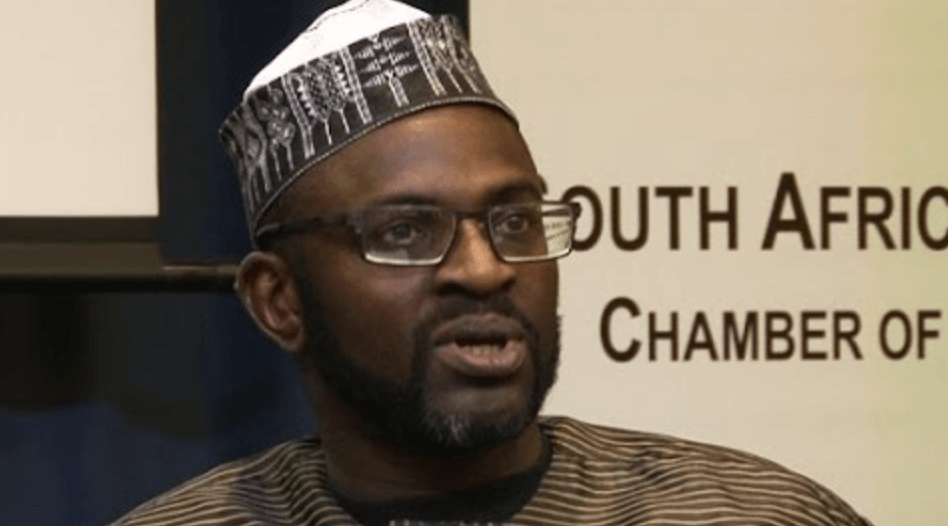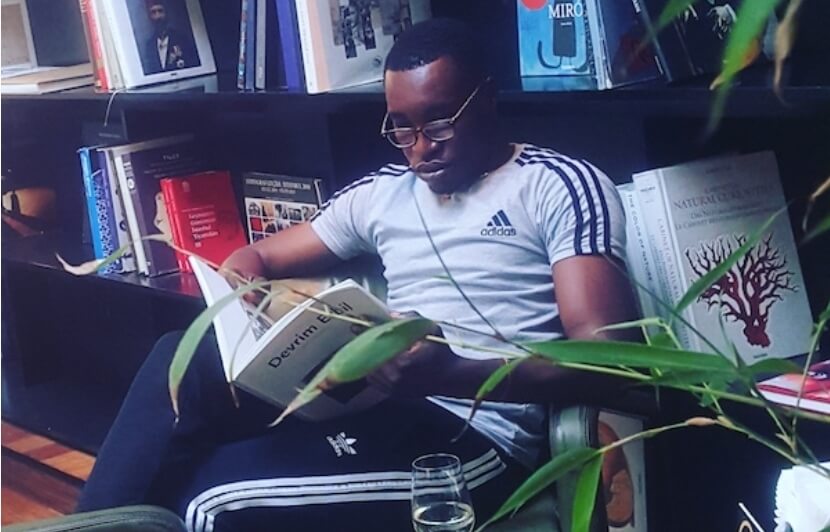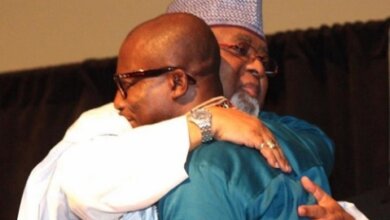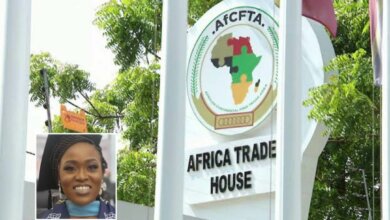South Africa and Nigeria – the continental giants with a sometimes uneasy, but always symbiotic relationship – A Rejoinder

The Deputy High Commissioner of South Africa to Nigeria, Dr. Bobby Moroe in his opening statement in his recent article in the Maverick newspapers’ Opinionista column published on June 1, 2021 stated ‘that much has been written about the perceived or imagined rivalry, competition and the quest for the hegemony of the continent by South Africa and Nigeria, and much less about their successes, cordiality and milestones over the years. Even fewer works that are available focus on the socioeconomic contrasts between Nigeria and South Africa in a way that seeks to project and promote competition.
The ambassador is right about the perceived or imagined rivalry and it does exist. A couple of instances related to the candidacy of Dr. Nkosazana Dlamini-Zuma for the AU Commission chair in 2013 which was not supported by the then Goodluck Jonathan government.
Also, when Nigeria was declared Africa’s largest economy on April 6, 2014, many South Africans did not make nice statements about the new economic status of Nigeria, and some like Mzimkuhlu Malunga, former MD of Business Day Financial Mail called it a mere book entry.

At the time, Michael Monnerjahn of the German-African Business Association stated the following: “The absolute value of the gross domestic product is not helpful, especially in a place like Nigeria where 90 percent of export earnings are tied to oil,” Monnerjahn said, adding that even if Nigeria’s GDP is in the same league as that of South Africa, the two countries are far from equal.
South Africa, he said, has a much more mature and sophisticated economy. They have their carmakers, machine manufacturers, and chemical producers,” he said. One thing Nigeria does have is oil, but its status as the eighth-largest oil exporter in the world puts it in a precarious situation. Prices on the global market for crude oil are fickle and most refineries are located abroad. But Nigeria has little else, even if the mobile communications market and construction industry in Nigeria is booming and films produced in “Nollywood” are selling well internationally.
The Ambassador noted that the two countries have always enjoyed cordial fraternal relations dating back to the early days of South Africa’s struggle for freedom and liberation, a dark period during which Nigeria stood by South Africa. This is an undisputed fact because Nigeria chaired the UN special committee on anti-apartheid for almost thirty years and also sacked many companies with apartheid links during the military regime of Murtala Muhammed/ Obasanjo in 1975.
Dr. Moroe also indicated that buoyed by their strong historical ties, the two countries established the Nigeria-South Africa Bi-National Commission (BNC) in 1999 and the two countries elevated the status of this mechanism to head of state. The Bi-National Commission has not been very active since it was formed and the last time it met was in October 2019 after the state visit of President Muhammadu Buhari. There are still many areas of difficulty which has also been deepened by the recurring xenophobic attacks.
In September 2019, Air Peace airlines evacuated 601 Nigerians on two mercy flights from Johannesburg after the burning of many of their stores in Johannesburg and fear for their lives. Since then many Nigerian businessmen and tourists have chosen Dubai and other destinations as alternatives. Securing visas for Nigerians wishing to visit South Africa even for business is extremely cumbersome and fraught with delays and so many requirements. Since 2017, A South African traveler can apply for a visa on arrival to visit Nigeria whereas a Nigerian does not have the same benefit.
Read also: Africa in the 21st Century and Role of Diaspora Nigerians in its Trajectory
Ambassador Moroe opined there is no shadow of a doubt that the relations between South Africa and Nigeria are among the most significant on the continent due to their enormous economies, abundant influence, and conspicuous stature. He went further to illustrate this by quoting from a book, The Eagle and The Springbok, Professor Adebayo Adideji validates the notion of two powerful states by asserting that: “The success of political and economic integration in Africa rests heavily on the shoulders of these two regional powers that have both collaborated and competed with each other in a complex relationship that is Africa’s most indispensable.”
Amb. Moroe probably meant to refer to Prof. Adebajo Adekeye of the Institute of Pan African Political Thought and Conversations and not the late Professor Adebayo Adedeji, the renowned economist and former Secretary General of UNECA who passed away in April 2018 at the ripe old age of 88. There is no doubt that given that Nigeria represents 60% of the GDP of ECOWAS and South Africa about 60% of SADC GDP these two nations are the push and pull factors in Africa’s economy.
He further went on to state that to this day, this narrative remains strong and has disappointingly bred a narrow-minded and myopic picture about the two countries and how they view each other.
The existing negative narrative about the two African economic giants is in my view one that is pushed by media particularly South African media. Many South African journalists do not have a deep and thorough understanding of Nigeria’s rich history and the depth of its soft power so they punt negative narratives which seek to damage the cordial relations between the two nations and this must change.
The Ambassador also proffered that there is an urgent need in the public discourse to overcome a lack of substantive theoretical framework in defining the relations between South Africa and Nigeria and contextualize them within the framework of what they seek to achieve. By doing so, understanding relations within this framework will close the existing gap in the inadequacy of research conducted on how greater social and economic value can be achieved from harnessing South Africa-Nigeria solidarity for concrete, stronger, and revived economic and social cooperation.
I agree fully with Ambassador Moroe that public discourse is certainly welcome especially around the key thematics of trade and cultural synergies, after all, South Africa’s Heritage day on September 24 is exactly a week before Nigeria’s date of independence being October. It can be used as a week to craft events and conversations that accentuate the positive stories and embellish the areas where there is convergence.
There is no doubt that South Africa and Nigeria can help to advance the AU’s Agenda 2063 in many ways. It is however going to be a lot harder than originally envisaged given the internal security challenges Nigeria is currently facing and its economic problems such as inflation and high unemployment as a declining currency. South Africa also faces serious systemic economic challenges compounded by 33% unemployment and the energy crisis which will remain for the medium term.
The Ambassador states that South Africa’s international relations are guided by the promotion of the wellbeing and upliftment of its people, protecting the planet for future generations, and ensuring the prosperity of the country, the region, and Africa. To achieve these objectives, a critical and pragmatic evaluation of existing international relations, and untangling the “spaghetti” bowl of overlapping regional affiliations and commitments, is necessary (NDP 2011: 217). It is in this context, and in pursuit of national interests that South Africa’s approach to engaging with Nigeria must be understood.
He also added that while Africa’s growth increases the size of the continent’s economy, this growth provides the continent with a greater voice in global and economic institutions. To this end, Nigeria, the most populous country in Africa, remains a key strategic country for South Africa due to its big economy, population, power, and influence on the continent. As such, this presents an opportunity for South Africa.
Let me state that on the other hand Nigeria’s Nollywood and its music has become a key part of the South African sub-culture with South Africans embracing artists such as Burna Boy, Omah Lay, Davido, and Wizkid to mention a few. The cultural impact that Nigeria’s creative industries are having not only on South Africans but on the entire continent needs to be measured qualitatively and quantitatively. Some of us may have noticed that Ralph Mupita, the President and CEO of MTN Group is almost always dressed in Nigerian attire and so is Fikile Mbalula, the Minister of Transport.
Indeed, Nigeria will always remain a key strategic country for South Africa given its massive population, big economy, power, and influence.
It is noteworthy to mention that 10% of South Africa’s African exports go to Nigeria. Trade between Nigeria and South Africa stood at R66 billion in 2014. MTN Nigeria increased its subscriber base in the first quarter of 2021 by 15 million to reach 75 million subscribers. When MTN Nigeria was listed on the Nigerian Stock Exchange in 2019 it was valued at $5billion. It would be quite important for South Africa to reduce the barriers to entry for Nigeria companies wishing to do business in South Africa and leverage the opportunities in South Africa into Southern Africa which is a far bigger market than Nigeria with stronger currencies than the Naira in a few of those countries.
It is most welcome that more Nigerian investments are pouring into South Africa. Air Peace began direct flights from Lagos to Johannesburg twice a week in December 2020 under the bilateral air service agreement signed during President Buhari’s state visit a year prior. Also, Access Bank bought controlling shares in Grobank in March 2021 at a value of $60 million. The entry of Access Bank is the first time a Nigerian Bank will be trading in South Africa. Paystack, the Nigerian fintech company has also entered the South African company at a competitive and lower service charge offering than its main competitors.
South Africa and Nigeria’s pivotal economic role on the continent is certainly well below their potential. Nigeria will do well to diversify away from its heavy dependence on oil and failure to invest in energy and healthcare is a huge burden on the economy. Before lockdown Nigerians spent US$1billion on medical tourism and the cost of doing business is very steep due to the high cost of diesel which businesses and individuals have to fork out to have power. Even the Nigerian president is a medical tourist and that is quite unfortunate in the 21st century for Africa’s largest economy to be saddled with.
Nigeria’s membership of myriad of continental and international bodies is a good thing but many Nigerians will argue that these memberships have not added much value given that Nigeria still sits at the bottom on almost every index of Human Development. As at the present moment, there are at least half of the 88,000 medical doctors registered with the Nigerian Medical Association (NMA) outside Nigerian shores. It is, however, the good news that the World Trade Organisation (WTO), the African Development Bank, and the Afrexim bank are led by Nigerians and hopefully this should benefit Nigerian businesses in the near term.
On the other hand, South Africa is a member of SADC and remains one of the most influential member states in the regional body. Since the resumption of its membership in August 1994, South Africa has taken a leading role in the region to address issues including development and economic integration. Projections of global power capabilities among SADC countries using the International Futures forecasting tool show that by 2040, Angola will be the only country that approaches South Africa, but that the latter will still wield more power potential. The only other country in SADC that will come close to these two heavyweights is Tanzania, largely because of its rapid population growth.
South Africa’s influential role in SADC, the regional body is not in doubt but given the challenges in Zimbabwe and the inability of South Africa to help address the issues in Zimbabwe there are pressures that the exodus on Zimbabwe place on the South African economy and in some instances there has been attacks on Zimbabweans who have been accused of working for much lower wages and even engaged in criminal activities. Mozambique is also a headache for South Africa and the wider region, the latest terror attacks in the Cabo Delgado region threaten the $60 billion liquified natural gas project and the peace and stability in Mozambique and the wider region if not nipped in the bud.
With the two countries wielding so much power and influence in the region, and globally, their relations become significantly important, particularly for purposes of driving industrialization on the continent. It is therefore critical that their relations are not only viewed within the context of competition, but rather, a collaboration that seeks to benefit the entire continent There is no doubt that South Africa and Nigeria wield enormous influence in the region and even beyond. The fact that a Nigerian in the mold of Dr. NgoziOkonjo-Iweala is the very first female and very first African to secure the top world trade job is instructive.
South Africa has the infrastructure and world-class industries to assist Nigeria to become a fully industrialized nation especially since South Africa is also part of BRICS and perhaps it should become BRINCS to encourage collaboration rather than competition. It is also useful to consider a collaborative partnership similar to the type the French and the Germans express in Europe. Time will tell whether these types of opportunities will be embraced by the two nations.
Written by Adetunji Omotola — an independent Africa Analyst and a media personality. He is the Co-Founder of Afrospace and anchor for How We Made It In Africa www.adetunjiomotola.com.
Oral Ofori is Founder and Publisher at www.TheAfricanDream.net, a digital storyteller and producer, and also an information and research consultant.





